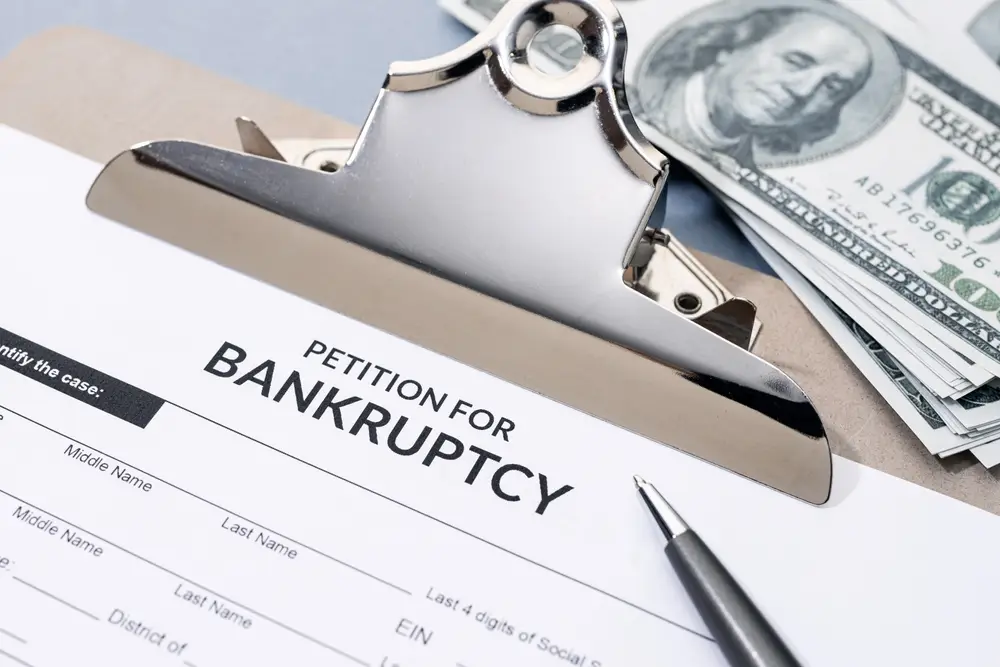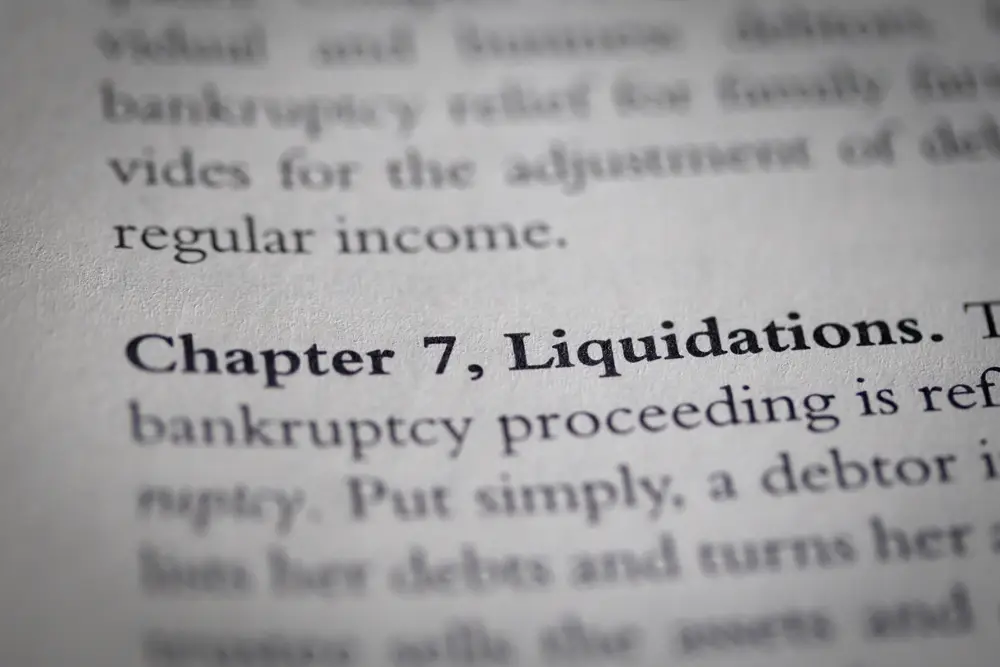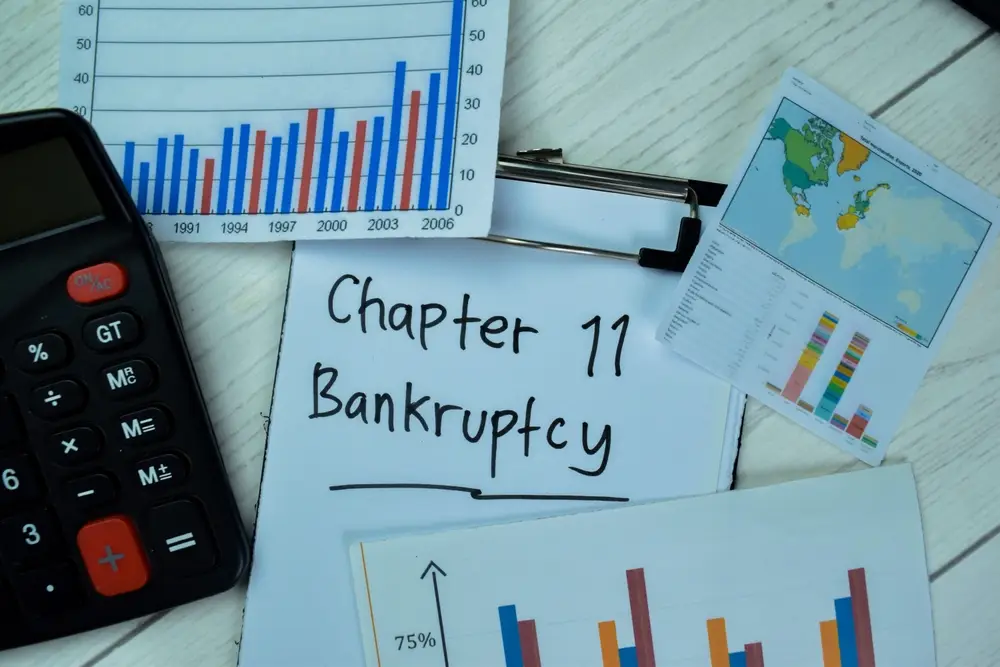Montare Law Practice Areas

Personal Bankruptcy
Are you struggling with overwhelming credit card bills, medical expenses, or other unsecured debts? Financial hardship can be stressful, but you have options. Montare Law can help you explore personal bankruptcy as a path towards a fresh financial start. We understand the emotional and legal complexities involved, and will guide you through the process with compassion and expertise. We handle both Chapter 7 and Chapter 13 bankruptcy filings, and will help you determine which option best suits your needs.
Chapter 7
Chapter 7 bankruptcy allows for the discharge of most unsecured debts, such as credit cards, medical bills, and personal loans. This can be a powerful tool for individuals facing a significant debt burden. Our experienced attorney, Ms. Montare, will walk you through the Chapter 7 filing process, ensuring all steps are completed correctly and efficiently. We will explain what debts can be eliminated under Chapter 7, and how to protect your exempt assets throughout the process.


Chapter 13
Chapter 13 bankruptcy provides an opportunity to reorganize your debt into a manageable monthly payment plan. This allows you to catch up on missed payments while keeping valuable assets like your car and home. Montare Law will work with you to create a customized repayment plan that fits your specific financial situation. We’ll guide you through the Chapter 13 process and ensure your rights are protected throughout.
Chapter 11
Mrs. Adriane Montare has experience guiding business owners through the Chapter 11 bankruptcy process. Chapter 11 allows your business to continue operating under court supervision while you develop a reorganization plan to repay creditors. This plan can involve various strategies, such as extending debt repayment terms, negotiating reduced balances with creditors, or selling non-essential assets.


Small Business Bankruptcy
Financial challenges shouldn’t force you to close your doors. Montare Law understands the unique challenges faced by small businesses. We offer experienced legal guidance for Chapter 11 bankruptcy, which can help you restructure your debt and potentially save your company. Chapter 11 allows for a court-supervised reorganization plan, providing breathing room to negotiate with creditors and develop a path towards financial stability.
How It Works
The bankruptcy process starts with filing schedules with detailed financial information. After the case is filed, an automatic stay will go into effect that stops your creditors from taking any action against you or your assets, including harassing phone calls. The process requires a meeting with the court-appointed trustee and time for creditors to make objections. In most circumstances, you can receive your Chapter 7 discharge in as little as 4-6 months.

Consultation
We will meet by phone or Zoom for 30 minutes during which we will discuss the differences between Chapter 7 and Chapter 13 and your particular situation, after which I will recommend a course of action.

Strategize
After our consultation, you will receive a detailed questionnaire that will provide us with all the information we need to prepare your bankruptcy schedules. If you decide to retain our firm, we will have an in-depth meeting to go over your completed questionnaire, with close attention to protecting your assets and getting as many of your debts discharged as possible.

Take Action
The next step is to prepare your schedules for your review and then file them with the court, initiating your bankruptcy case and triggering the automatic stay. I will guide you through the trustee’s meeting and help you plan for rebuilding your credit after the case is concluded.
FAQs
I am behind on some rent and my landlord is understandably not happy about this. But I finally just filed for bankruptcy and completed my 341 meeting with creditors and think I am just waiting on that final discharge paper. But my slumlord has been harassing me, causing scenes and yelling matches as well as entering the apartment without consent while no one is home that I have documented on security cameras numerous times for awhile now. I admittedly owe him the money and that I do plan on paying him back every dime once my credit is in better standing and I can qualify for a personal loan?
Ariadne’s answer:
When you file for bankruptcy, an automatic stay goes into effect to keep creditors from taking actions against the debtor. However, the automatic stay will not apply to an order of eviction from housing court. In that case, the debtor can put off the eviction for one month after filing if the debtor pays that month’s rent into the court’s escrow account.
I am a painting contractor who relies on lead sites such as CraftJack and Home Advisor I had joined Home Advisor before they merged with Angies List. The way they work is you set a monthly spending limit and are then sent painting leads throughout the month based on the spending limit I myself set. The amount of leads I receive a month is completely up to me based on what I set my spending limit. Some months I would set my limit at 200.00 and a few times I set it as high as 300.00. The last month I had used Home Advisor I had set my monthly spending limit at 300.00. within a week of setting my monthly spending limit at $300.00 I logged on to my Home Advisor account and as shocked to see that I had been charged for $6,194.88 worth of leads that has since been sent to collections. I have tried to contact Home Advisor but I am given the run around. I demanded to know how I can be charged even one dollar over the 300.00 dollars I had set my monthly limit to let alone $6,194.88 and am never given a legitimate answer. Any advice as to how I should go about this legally would be greatly appreciated. Would this be a matter for small claims court and is there a specific type of layer to that?
Ariadne’s answer:
The Consumer Financial Protection Bureau (cfpb.gov) has great resources for challenging a debt like this. First, file a complaint on their website. The company is supposed to answer your complaint within 2 weeks and the response gets you access to a decision maker, not a customer rep. Second, follow the CFPB guidance for objecting to the debt and demanding information from the collection agent. Third, file disputes with all 3 credit bureaus (Expedia, etc). If this doesn’t work, find a consumer law attorney. Best of luck to you.
I am in a chapter 13 and I get earned income credit and child tax credit refund money when I do my tax returns because I have children. What is the name of the law that explains that child tax credit & earned income credit is not countable income? That it is except from federal & New York State tax returns that makes it except from Trustee taking my tax returns? Looking for the name of the law? These credits are not taking from my actual salary every 2 weeks. These credits on a tax returns are because I am in a low income bracket & have 2 school age children. I would not have a tax refund credit other wise! Looking for the name of the law in New York that makes it except from trustee taking my credits portion of my refund???? Please help!
Ariadne’s answer:
I would look first to the IRS website to see about exemption under federal law. New York State has its own exemptions laws that do not specifically address tax credits. The closest to your situation is Debtor & Creditor Law section 282, which addresses public benefits. Some courts have interpreted this section to cover tax credits as “public assistance” but this is still an open question as to what constitutes “public assistance.”
My advice is to speak directly to the Chapter 13 trustee and see what their expectation is regarding turning over the tax credit part of your refund. It may be that the trustee treats these amounts as exempt and you have nothing to worry about. You won’t know until you ask. If the trustee wants the funds, then you need to consult an attorney who can negotiate with the trustee or file the appropriate motion with the court.
The Bankruptcy Code presumes that extensions of credit, such as cash advances on your credit cards, made within 70 days of bankruptcy and totaling $1,000 or more are taken with the intent not to pay back the advances and therefore are not dischargeable (meaning that you will still owe the debt after the bankruptcy is over). Your creditors also have the right to challenge the dischargeability of the debts no matter when they occurred, claiming that the debtor never intended to repay them, by filing an exception to discharge of the debt. The burden is on the creditor to prove the debtor’s intent to not pay, which is usually very hard for credit card companies to prove so most will not file an exception to discharge. However, the best course of action is to wait at least 3 months after incurring large amounts of debt to file for bankruptcy and to hire an experienced bankruptcy attorney.
It is hard to answer this question without more information about the Purdue bankruptcy. The court may have appointed an attorney or a committee to negotiate on behalf of the personal injury victims. You may also be able to file a proof of claim for your injury if the bar date for such claims has not yet passed. Either way, I would consult a bankruptcy attorney to see what your options are.
